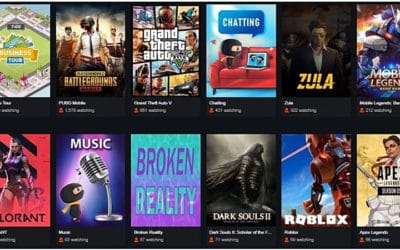Check out our curated Weekly RoundUP of the breaking and must-read news – South African website crowdsourcing reports of xenophobic violence; Google is crowdsourcing Android Wear watch face designs; crowdfunding site Kickstarter has launched in Singapore; and more …
‘Xenowatch’ to crowdsource reports of xenophobic violence in South Africa
Migrant and tech experts in South Africa have set up a crowdsourcing platform for people to report xenophobic threats and violence. Read more here
The ACMS and technology website iAfrikan this month launched a crowdsourcing platform called Xenowatch to address a major challenge in preventing violence – an information black hole. South African police don’t specifically monitor the location and frequency of anti-foreigner attacks, so it’s hard to establish what’s stoking the violence, says ACMS researcher Alexandra Hiropoulos, who led the Xenowatch project. She has documented the looting of nearly 1,000 foreign-run shops in South Africa already this year. People can report xenophobic threats or violence to Xenowatch online, by SMS or email. Reports will be verified, anonymized and documented on a map using the Ushahidi platform, as well as shared with the police and the United Nations refugee agency.
Crowdfunding site Kickstarter launches in Singapore
Kickstarter, the world’s largest crowdfunding platform for creative projects, has launched in Singapore
The news was welcomed by creators here, who previously had to go through an overseas representative to launch projects on the site. Speaking to The Straits Times over Skype from Kickstarter’s office in Brooklyn, New York, the American company’s co-founder and CEO, Mr Yancey Strickler, said Singapore and Hong Kong were chosen partly because they had large and supportive communities of backers. People from Singapore have spent nearly US$30 million (S$41 million) backing Kickstarter projects, out of US$2.5 billion worldwide, and form among the largest proportion of backers in the world. With the launch, more projects from Singapore can be expected on the platform, giving backers more choice as to what to back, he added.
Fueladream to raise ₹100 cr via crowdfunding
Fueladream, an Indian crowdfunding platform for ideas and causes is looking to raise about ₹100 crore for the companies listed with it
The platform, which was launched this April, has already raised ₹1.5 crore till date and will post about ₹6 crore by the end of this year. “Both ideas and charities can come and register with the platform, and offer services at a great price to the customer. Next year, we should be touching ₹20 crore, and ₹100 crore the year after that,” Ranganath Thota, founder and CEO, told BusinessLine. Terming the platform as a confluence of “creativity and cause”, he said it is being used to raise funds for disasters, arts and paintings, and charitable causes. On Tuesday, the company started the second round of crowdfunding for Spero, an e-bike, looking to raise up to ₹15 lakh. The company had raised ₹38 lakh in the first campaign for the bike, launched by Coimbatore-based Milltex Engineers. “There were doubts that a product that costs between ₹30,000-48,000 would get funded successfully. This campaign has been a trendsetter and will generate more innovation from inventors in India as they embrace the concept of crowdfunding,” Ranganath said.
Crowdsourcing can help create better science tests cheaper
A new way to check the quality of science test questions has been found through crowdsourcing. More details here
The CfA group has had a long-standing program of developing methodologically rigorous tests for various sciences and grade bands. The researchers evaluate new multiple-choice questions in a two-step process. First, they conduct pilot testing of lots of questions, developed by content experts, on a large number of students. Then they conduct field testing on 1,000-2,000 students. Using statistical analyses, they select the best questions for the final tests. Sadler and his team investigated whether it was possible to replace the first step, pilot testing, with crowdsourcing. Crowdsourcing websites, like Amazon’s Mechanical Turk, assign thinking tasks to a global community who receive small payments in return. For this study, the task of each participant was to answer a set of 25 multiple-choice life science questions developed for middle-school students. Sadler emphasizes that crowdsourcing can’t entirely substitute for studying the target student population when producing high-quality tests. However, by using it as an early step, questions can be quickly evaluated for deletion, revision, or acceptance. Surviving questions can then undergo more rigorous testing.
New Thomson Reuters mobile app uses crowdsourcing to deliver commodities insight
A mobile crowdsourcing app that allows farmers to share crop data in exchange for market insight has been launched by Thomson Reuters
Thomson Reuters new Data Share app was created for use by farmers and producers to contribute proprietary and primary location-based data around the crops they are growing (acreage and yield). This granular level of information builds an incredibly detailed view of supply of various crops, which can then be analysed and shared as forecasts to customers operating in the financial markets via Thomson Reuters flagship desktop, Eikon. In exchange for this data, farmers are provided with high-level insight from a trusted source into the comparatively opaque markets in which they operate, helping them to better market their products and plan their planting based on reliable and trusted data that is gathered in an ethical and transparent manner.
The U.S. military is crowdsourcing a biohazard suit
$250,000 is up for grabs in the Chembio Suit Challenge
Crowds, when left to their own devices, aren’t as stupid as the individuals they contain. Unless we’re talking, like, a Kenny Chesney concert. In this case, the wisdom of crowds could help the American military design its next “super suit.” The Chembio Suit Challenge offers a total of $250,000 in prize money to the person or people who design the best chemical and biological agent-resistant suit. Current suits worn by soldiers are hot and unwieldy. Hopefully, this contest will unearth some designs that eliminate those problems.
Google is crowdsourcing Android Wear watch face designs
Google is collaborating with Paper Magazine to crowdsource the next batch of Android Wear watch face designs
Google will be accepting submissions from creative individuals and anyone who generally has an interest in having their design featured with a new set of watch faces, so unlike previous batches where Google worked with companies and professional designers, anyone is allowed to apply here. This is potentially big news for anyone who may be working to get recognition for their designs, and it could be especially beneficial if their designs are chosen. As stated above, submissions have to be in within the next few weeks as Google will be choosing the featured designs for the Fall collection of watch faces that they plan to release. As for exact dates, anyone interested in sending their designs to Google will need to do so by September 15th. Submissions have to be sent in through Instagram, but more specifically, anyone who wishes to have their design chose will need to post their design to their own Instagram account and use two hashtags which include #WearWhatYouWant and #AndroidWear.
Image: newsdeeply
There are many fantastic stories out there. What else caught your eye this week? Did you come across some breaking news or a good thought piece? Do share them with us…





0 Comments